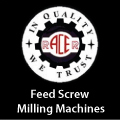
Rauwendaal Extrusion Engineering Inc.
Contact: Chris Rauwendaal Sietske Rauwendaal
Information Request Form
12693 Roble Veneno Lane, CA 94022-2668
U.S.
Phone: 650-948-6266
Fax: 650-948-0555
About Us
Rauwendaal Extrusion Engineering, Inc. is a Polymer Process Engineering and Training Company.
Our Mission :
To provide technically advanced and high quality products and services to the plastics industry.
To develop new machinery and processes that allow plastics processors to improve quality and to make products more efficiently.
Introduction
REE, Inc. specializes in extrusion engineering for the plastics industry. This includes both process and machinery design engineering. REE also develops and provides training programs and software for the plastics processors. Other services include process analysis and trouble shooting, expert witness services, computer simulation, and material analysis.
REE, Inc. provides value by:
* increasing knowledge of employees by training
* developing process machinery with improved performance
* debottlenecking manufacturing operations by systematic process analysis and identifying areas of potential improvement
* solving difficult process problems by systematic troubleshooting using advanced tools such as computer aided problem solving
* advanced engineering design using the latest tools such as 3D BEM analysis of flows in extruder screws and dies
* process simulation software for single screw extruders, twin screw extruders, dies with expert technical assistance
expert witness services with trial experience.
BIOGRAPHY CHRIS RAUWENDAAL
Chris Rauwendaal, president of Rauwendaal Extrusion Engineering, Inc., (REE, Inc) earned a postgraduate degree in Mechanical Engineering from Delft University and a Doctorate in Polymer Processing from Twente University, both in the Netherlands.
Chris has worked in the plastics extrusion industry since 1973. Four years in the man-made fiber industry at American Enka Co. (now BASF Fibers), where he was involved in process development in the area of melt spinning. He worked over twelve years at Raychem Corporation, where he was manager of Process Research in Corporate R&D.
Chris has experience in a wide range of extrusion operations, including fiber spinning, film, sheet, tubing, medical tubing, pipe, and profile extrusion, coextrusion, and reactive extrusion. Chris holds several patents in the field of polymer processing. He has worked on both practical and theoretical problems such as screw & die design, trouble shooting, modeling and computer simulation, material analysis, failure analysis, etc. He has been involved in several important legal cases as an expert witness.
Since 1979 Chris has been one of the premier extrusion seminar instructors. He has taught with the SPE and UWM and for the UC at Berkeley, University of Twenty(U of T) and Pennsylvania College of Technology (PCT). He continues to teach seminars through his company and with SPE, U of T and PCT. Chris has presented lectures around the world, in countries such as China, Japan, Australia, Brazil, Columbia, Canada, England, the Netherlands, South Africa, Germany, etc.
Chris is the author of the book "Polymer Extrusion," the most widely used book on the subject. Additional books he has written are: "Statistical Process Control in Extrusion", "Polymer Mixing - A Self-Study Guide," , "Understanding Extrusion" and "Statistical Process Control in Injection Molding and Extrusion" these are published by Hanser and distributed in the USA by Hanser Gardner Publications. Chris was the editor and a contributor of "Mixing in Polymer Processing" published by Marcel Dekker. In addition Chris has authored over one hundred twenty papers on extrusion related topics.
Chris wrote the video training program "Extrusion Technology," available from Paulson Training Programs and the video training program "Statistical Process Control in Extrusion," available from the SPE. He also developed the interactive, computer based training program in extrusion, ITX©, available from Paulson Training Programs, Hanser-Gardner Publications and REE, Inc. He has also produced the interactive training program "Statistical Process Control in Injection Molding."
Chris has served on the Board of the Extrusion Division of SPE. He was Technical program Chairman for the 1987 ANTEC and Chairman of the Extrusion Division in 1988. Dr. Rauwendaal has received several awards for outstanding contributions, among those the President's Award at American Enka Co., best extrusion paper awards at SPE ANTEC in several times, inducted in Raychem Thermofit's Division Hall of Fame, and elected SPE Fellow, one of the youngest persons ever to receive this award.
In-House Seminars
Rauwendaal Extrusion Engineering, Inc. (REE, Inc.) offers different in-house seminars. The advantage of an in-house is that they can be tailored to your needs.
Topics that you may want to consider for in-house training that are offered by REE Inc.:
* Extrusion Fundamentals
* Advanced Extrusion
* Twin Screw Extrusion
* Blown Film Extrusion
* Tubing and Profile Extrusion
* Mixing and Compounding
* Die Design
* Troubleshooting Extrusion Problems
* Statistical Process Control in Extrusion
* Statistical Process Control in Injection Molding
* Extruder Screw Design
* Foam Extrusion
Patented Mixing Devices for the Polymer and Food Processing Industries
Customizing Mixing Sections to Solve Your Mixing Requirements
These devices were designed to create efficient dispersive and distributive mixing by producing elongational-type flows. This was achieved using analytical, numerical, experimental techniques and "in-process" experience. There is great deal of engineering into each one of these devices to assure an optimal level of mixing. One of the unique attributes of these devices is that they can be modified for specific processing conditions, material properties, and level of mixing desired. With these devices your product homogeneity is improved to increase final quality, performance and aesthetics.
For more information or purchasing click
Mixing Breaker Plate (MBP)
The MBP design is a novel, quick and cost effective way of enhancing mixing in your extruder. It substitutes the standard breaker plate found at the end of the extruder. The design of the MBP can be modified to give stronger dispersive or distributive mixing depending on the material being processed and the processing conditions. The MBP can be made with parallel, circular or radial slots. If you are looking to add additional mixing to your process, the MBP is the easiest method.
CRD mixer
The CRD mixer is a revolutionary new design unique in its ability to provide dispersive and distributive mixing with low pressure loss or even pressure gains. The CRD generates elongational flows, which provides the most efficient mixing. Several different CRD geometries exist depending on the level of dispersive or distributive mixing that is needed. This device has been well received since its introduction one year ago with well over 50 now being used for various processes.
CRD Barrier Screw
The CRD barrier screw combines the advantages of conventional barrier screws with the outstanding mixing characteristics of the CRD mixer. The barrier flight in the CRD barrier screw is designed to create elongational flow as the plastic melt is forced over the barrier flight. This results in better dispersive mixing, reduced viscous dissipation, and lower melt temperatures.
Elongational Pin Mixer (EPM)
The EPM mixer comes as a stand alone ring or can be added to other mixing devices to provide excellent distributive and dispersive mixing. Similar to the other devices listed here, elongational flows are generated to provide for optimal mixing conditions.
Dispersive/Distributive Static Mixer (DDSM)
The DDSM static mixer is revolutionary in its ability to provide efficient and effective dispersive mixing while also providing distributive mixing. The DDSM generates continual elongational flows which are rarely seen in other static mixers. Similar to the Mixing Breaker Plate, the number and shape of mixing wedges, contraction and gap size can be modified for your specific process, material and mixing needs. The DDSM has a unique modular design for easy assembly, dis-assembly and cleaning. Click here for more information.
Non-Return Valve with Distributive and Dispersive Mixing Capability (CRD-NRV)
A convenient method to improve the mixing capability of the plasticating unit of an IMM is to design the non-return valve (NRV) such that it has mixing capability. Such a dual-purpose NRV allows an increase in mixing capability without affecting the melting and conveying capability of the plasticating unit. This paper will describe a NRV mixer based on the CRD mixing technology developed for single screw extruders.
Custom Extruder Screws by Rauwendaal Extrusion Engineering, Inc.
Patented Technologies
REE is a world leader in design and manufacture of custom extruder screws. We have developed several breakthrough technologies that enable significant improvement in extruder performance. REE has developed the CRD (Chris Rauwendaal Dispersive) mixing technology that uses strong elongational flow to improve dispersive and distributive mixing. More recently, the VIP (Vortex Intermeshing Pin) mixing technology was developed to achieve highly efficient distributive mixing. One of our latest developments is the HHT (high heat transfer) technology to achieved enhanced heat transfer. An important application of the HHT technology is in tandem foam extrusion where the secondary extruder is used to cool down the gas-laden melt from the primary extruder.
Technical Support
Rauwendaal Extrusion Engineering offers strong technical support. Not only did we write the book on extrusion we also wrote the book on troubleshooting and know how to solve extrusion problems. In fact, a substantial part of our engineering services involve analysis and solution of extrusion problems. REE also offers training programs to improve
Design Tools
REE has a wide range of design tools. In fact, many suppliers of extruders and screws use the books and papers we have written on extrusion and screw design - no single company has published more in this field. REE uses a number of analytical and numerical models to analyze and predict extruder performance. We have developed several new analytical models to calculate extruder performance.
REE has also developed numerical models for detailed analysis of non-isothermal and non-Newtonian flow. An example is our CFD software REEflow. REE works with The Madison Group and the Polymer Processing Group at the University of Madison, Wisconsin on applying the boundary element method (BEMflow) to a variety of extrusion and mixing problems. REE also cooperates with Compuplast on the use of Flow-2000 in extrusion and similarly with Fluent on the use of POLYFLOW and FLUENT in extrusion and mixing applications.
Types of Extruder Screws
This is a listing of the type of extruder screw we design and manufacture:
Single and multi-stage screws
Screws with dispersive and distributive mixing sections
Screws designed for enhanced heat transfer
Optimized barrier screws that avoid plugging and surging problems typical of conventional barrier screws
Special screw geometries to avoid screw breakage
Screws for grooved feed extruders
Screws for twin screw extruders




